Language-Art Project 2023
Click here for the Language-Art Project homepage.
This section showcases artworks discussing the merging, evolving and transforming of language through time and history. Language is a tool for people to communicate with each other. It also bears the weight of historical moments and cultural backgrounds.
Artists in this section try to illustrate and visualise the processes of language origin, evolution and their response to social changes, inviting the audience to join the narratives.
Haoyue Chen, co-curator
May 2023
Artists:
Veedang Mittal
Mazy Law and Sophie Chen
Flora Lu
Menglu Yuan
Xintong Liang (Sammy) and Zihan Lei (Lucile)
_______________________________________________________________________________
_______________________________________________________________________________
Exploring India Through Words
Vedaang Mittal
Mixed media and markers on 300gsm Canford Paper (A1)
In the work titled ‘Exploring India Through Words’, I am looking at Indian origin words in English and depicting them through text and visual imagery . The idea of origins and thought ‘where does the word really originate from?’ stemmed from the dialogue ‘where are you really from’ and people’s identity in a foreign land. Here I explore a few words out of the nine hundred which have Indian origins from the Oxford English dictionary
Vedaang Mittal: Current practice involves mixed media art with an emphasis on pen and ink, acrylics and dry media. The themes of exploration and virtual places, geometry and abstraction as a whole interest me with a focus on surrealism and research
Instagram: vedaangmittal03
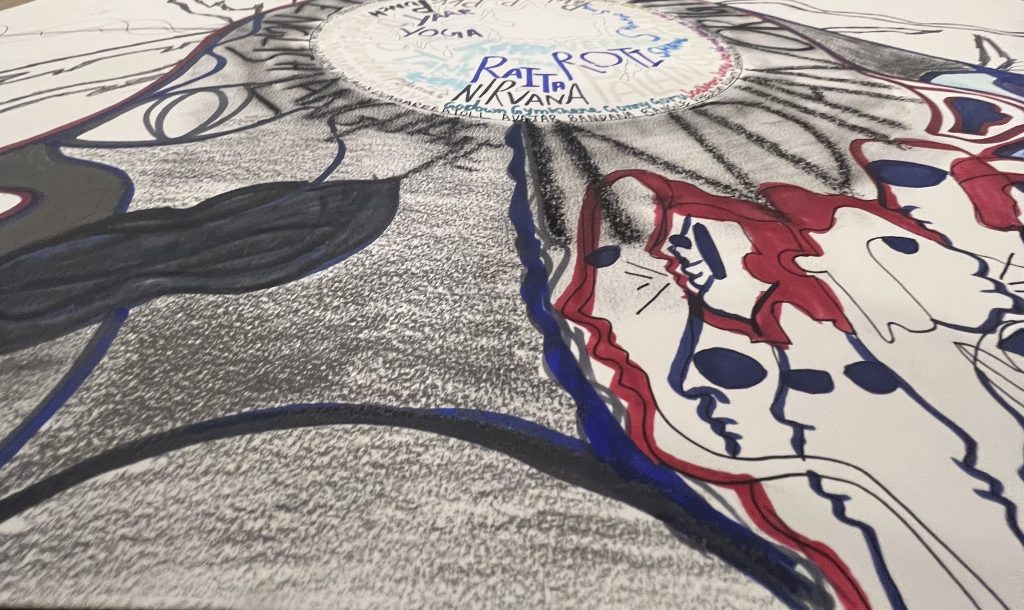
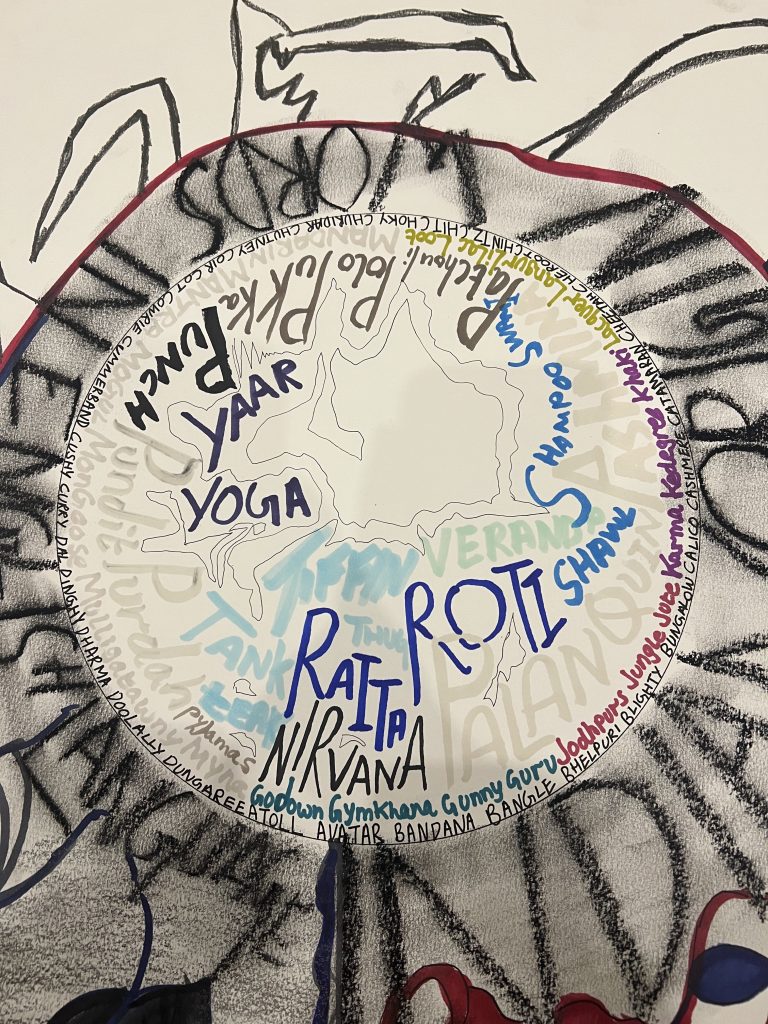
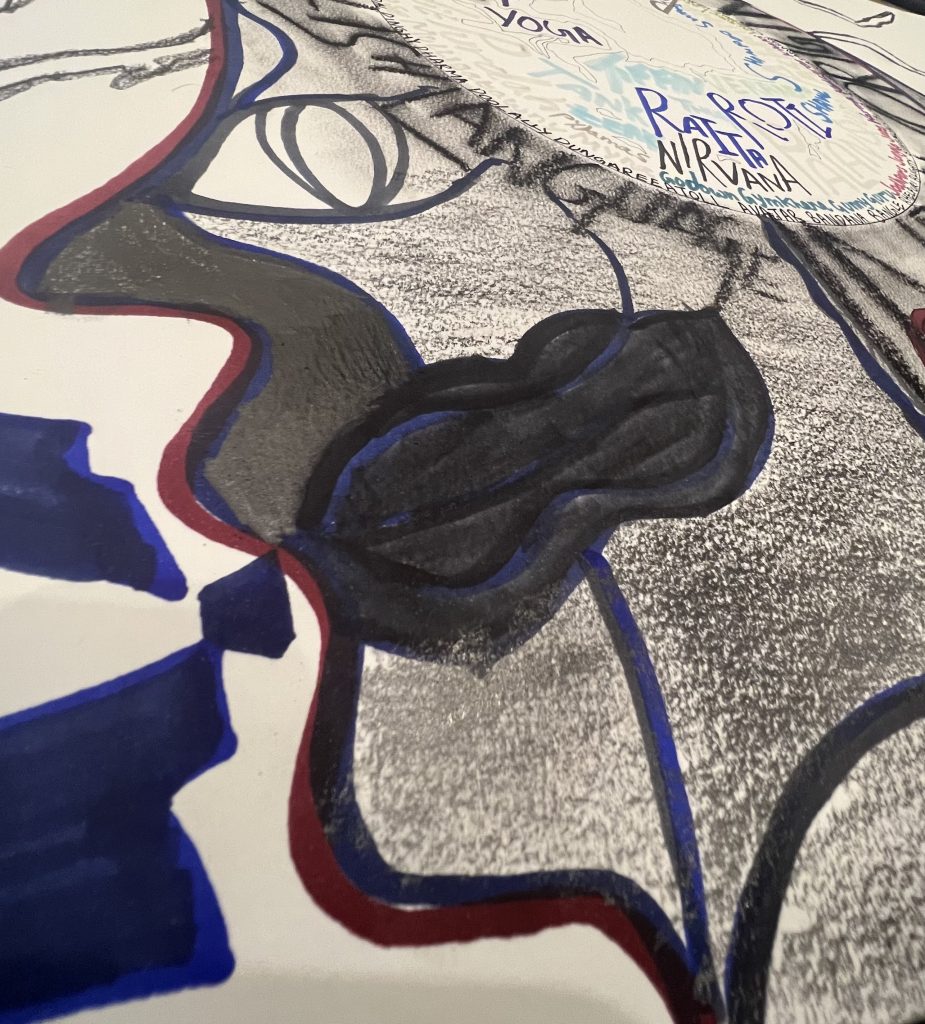
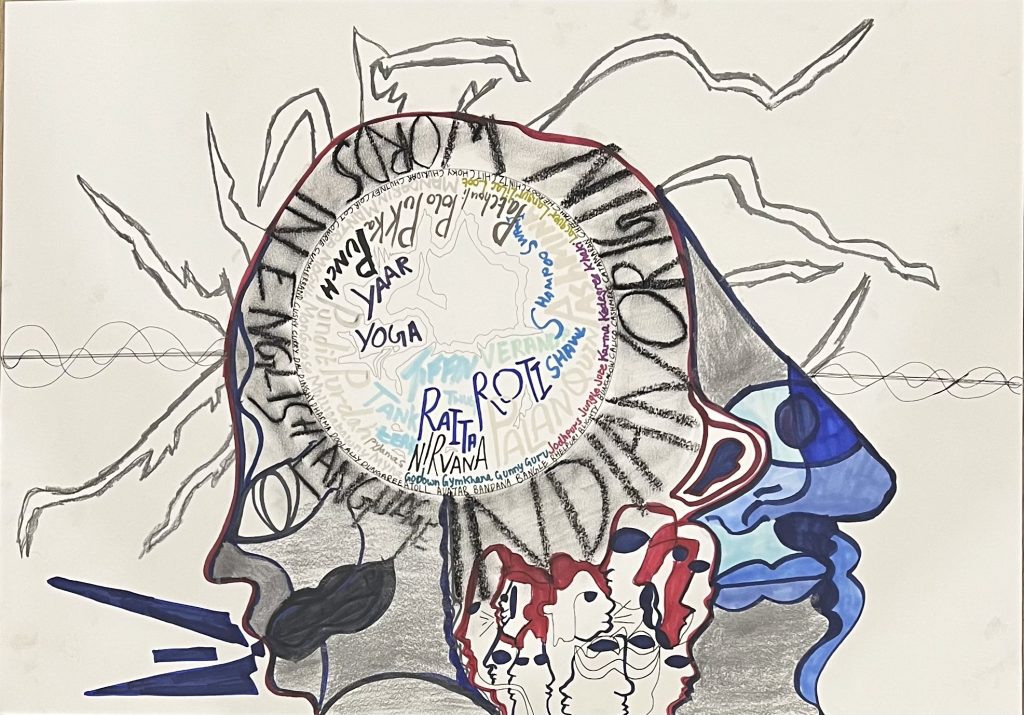
_______________________________________________________________________________
_______________________________________________________________________________
Chinglish / 中式英⽂
Mazy Law and Sophie Chen
Four A4 posters and an A5 booklet
Chinglish(中式英⽂)is Chinese English, a mixture of Chinese Modern Standard Mandarin and English that raise from the mistranslation of English to Chinese after English arrived in China, a language culture. People correct the translation errors in China, but there still have some people who come from foreign countries who persist in protecting this alternative culture.
We find some interesting Chinglish quotes and words and explore how to make sense of these funny quotes with non-native Chinese speakers through the visuals. We made 4 posters and gather them into a small A5 booklet, like a dictionary of Chinglish.
Mazy Law is studying BA Architecture (Year 2) at Central Saint Martins. She is interested in exploring the cultural impacts on society through arts and graphics. She is from Hong Kong and has been studying overseas for more than 5 years.
Instagram: mazycrazlazy_design
Sophie Chen is studying BA Graphic Design Communication (Year 1) at Chelsea College of Arts. She is particularly interested in the experiment on the relationships between visuals and publicity. And she is Chinese and first time working with cultural topics.
Instagram: sophiechen.gallery
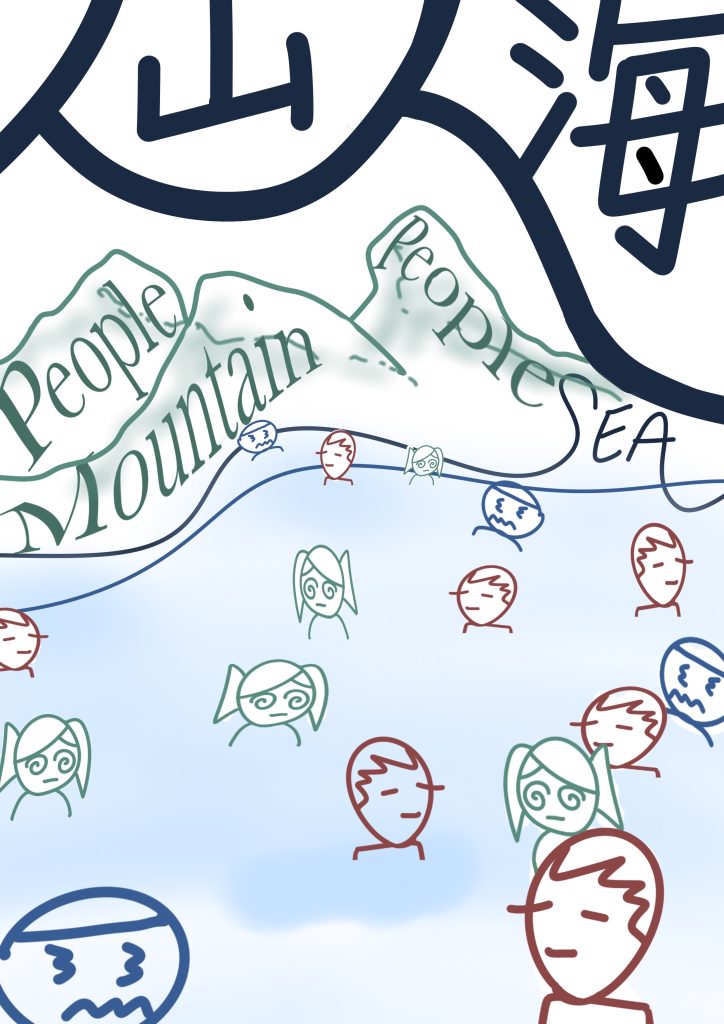
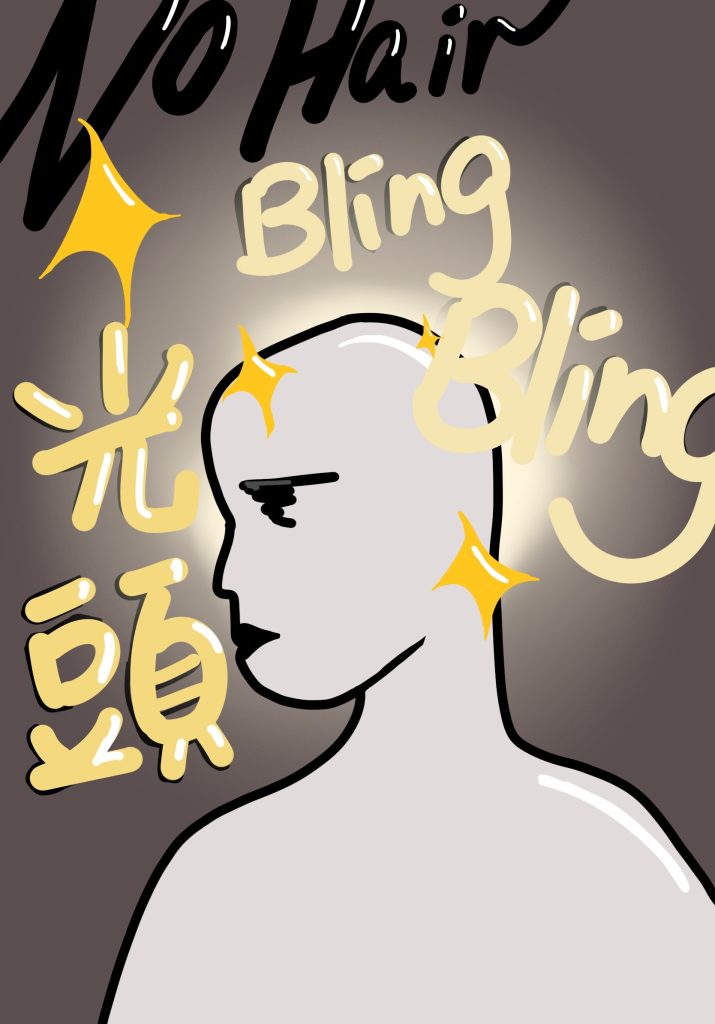
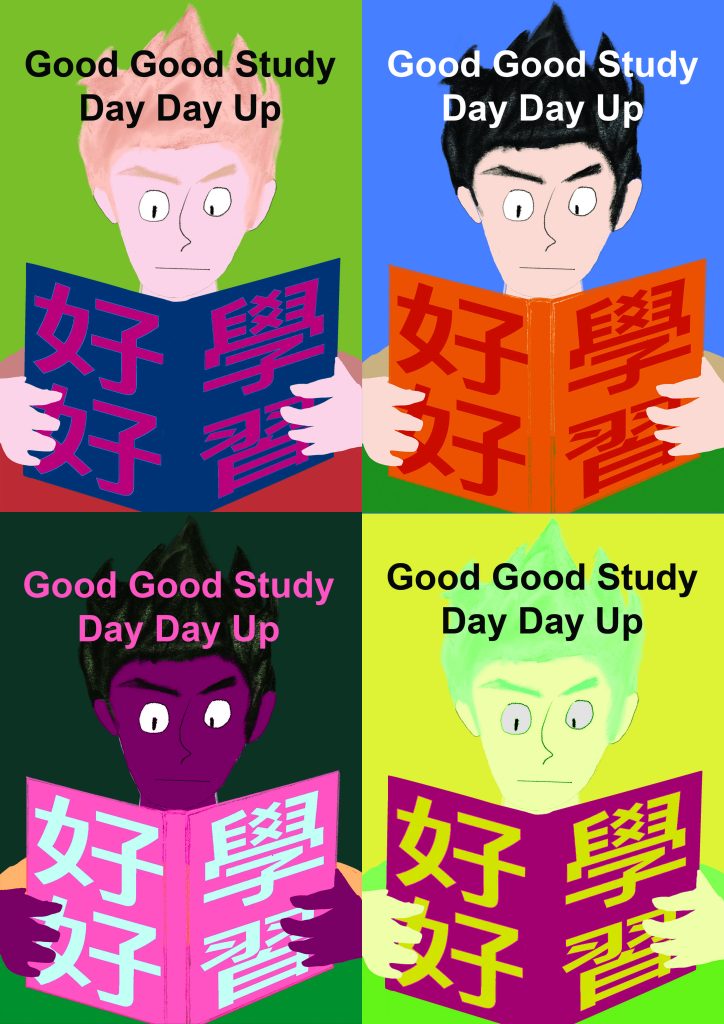
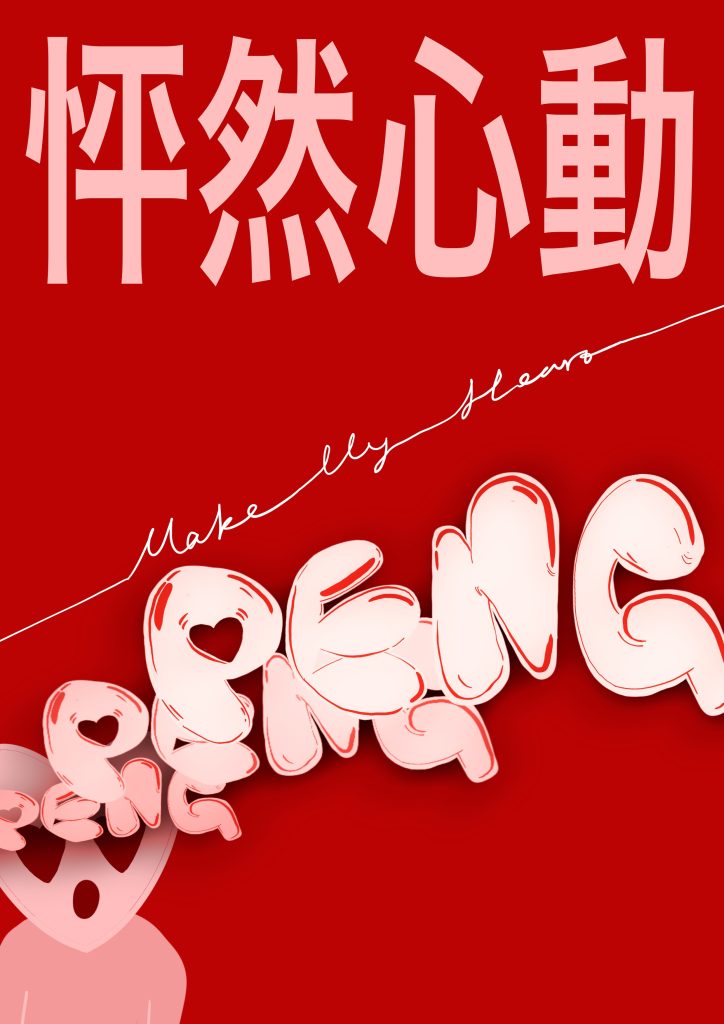
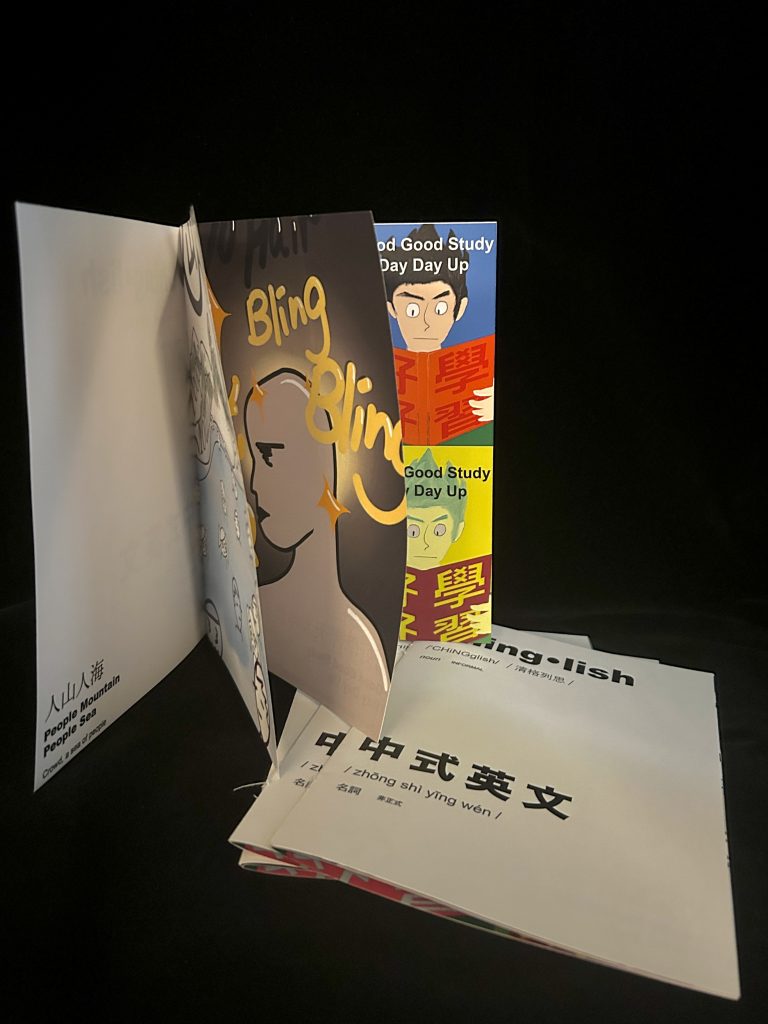
_______________________________________________________________________________
_______________________________________________________________________________
The Evolution of Ancient Chinese Oracles to Modern Chinese Characters
Flora Lu
Moving image: Procreate, Mental Canvas
Handmade illustration storytelling book: A5 white cardboard drawing paper, yellow and brown card paper, fine-line drawing pens, marker pens, string
Fold zine: Textile, brown cardboard paper, string, white cardboard paper
The Chinese language has evolved from oracles to modern characters for more than 3,600 years. As the oldest language system found in China, oracle is also an intriguing force of cultural output, having experienced different evolutions between historical dynasties. The artworks of this series are combined with illustrations in three different parts to show the oriental aesthetics and history brought by the Chinese language.
Artwork 1: Moving image of Chinese Oracle. This is displayed with 3D mirror operation effect, and equipped with music, which aims to bring the audience the beauty of Chinese Oracle.
Artwork 2: Hand-drawn storytelling booklet.
Artwork 3: Chinese Zodiac Oracles fold zine. This has twelve Chinese Zodiac Oracle cards inside. Each oracle card has the corresponding modern Chinese Characters, followed by Chinese Pinyin and English interpretations.
Flora Lu is studying BA Illustration and Visual Media (Year 3 in DPS) at LCC. Focusing on creating illustrations and animation/ moving image, she uses both Procreate and hand drawing in her illustration works. Her recent artworks this year mainly reflect the export and integration of Chinese culture.
Flora speaks both Chinese and English.
Instagram: jiayi_floraldn
Personal artwork website: https://floralujy0320.wixsite.com/my-site
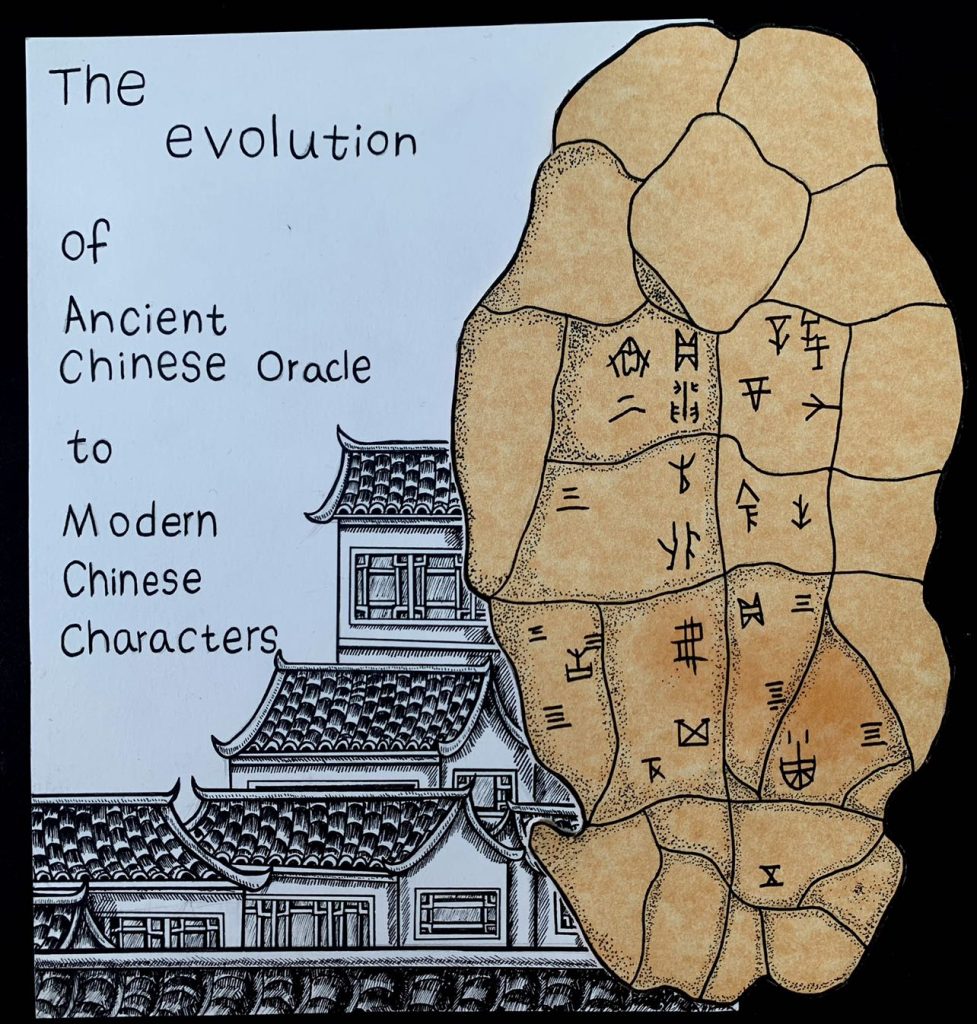
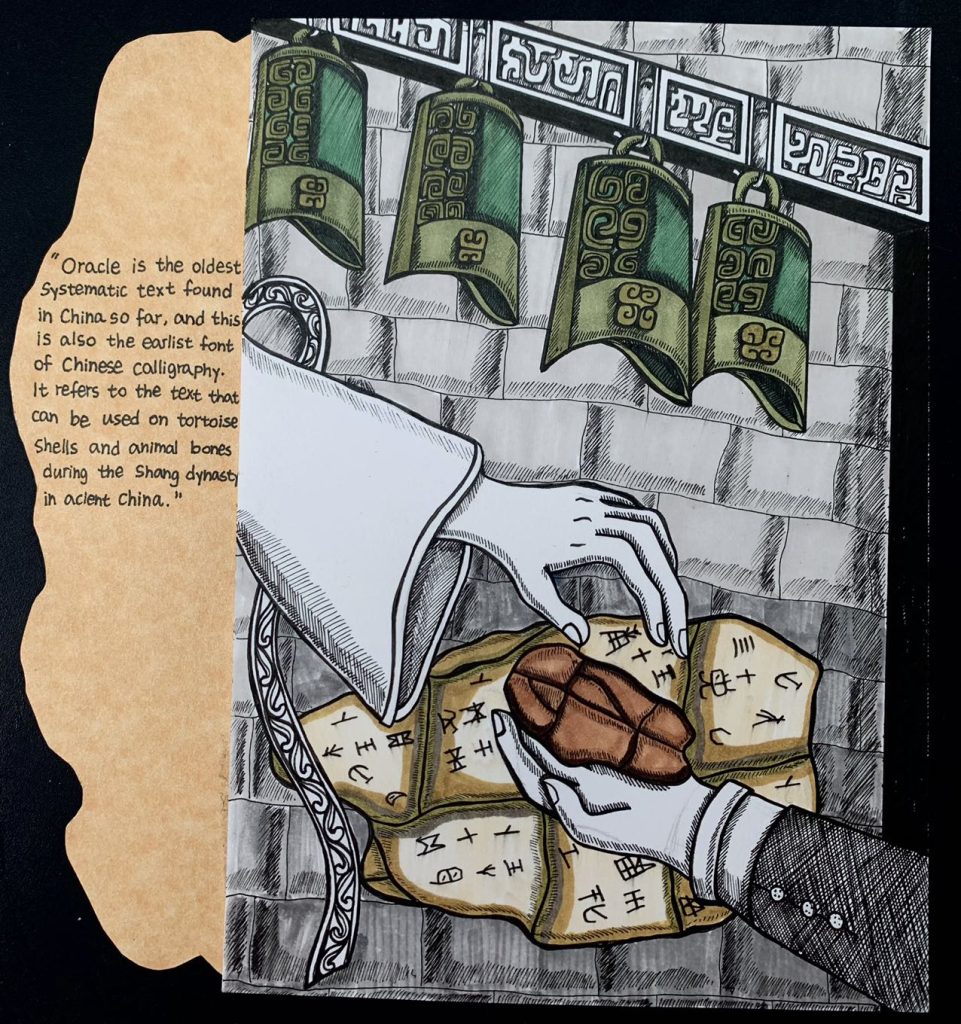
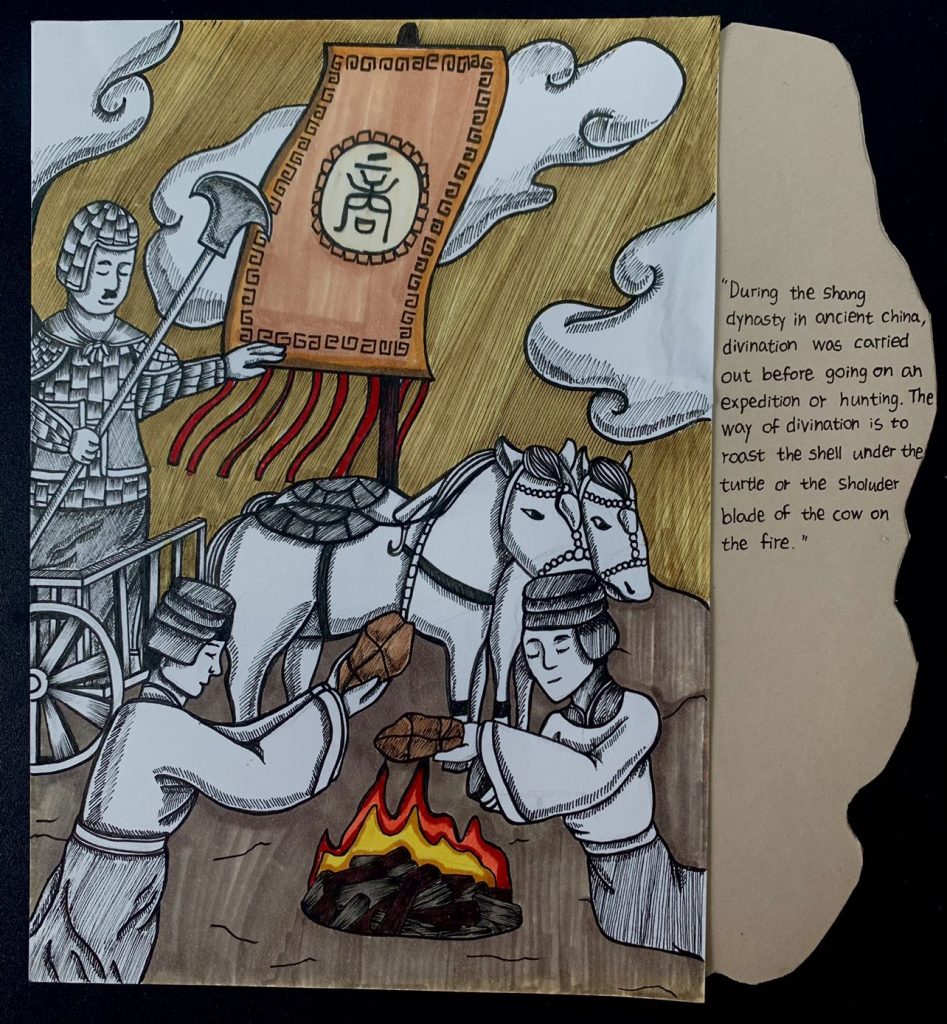
_______________________________________________________________________________
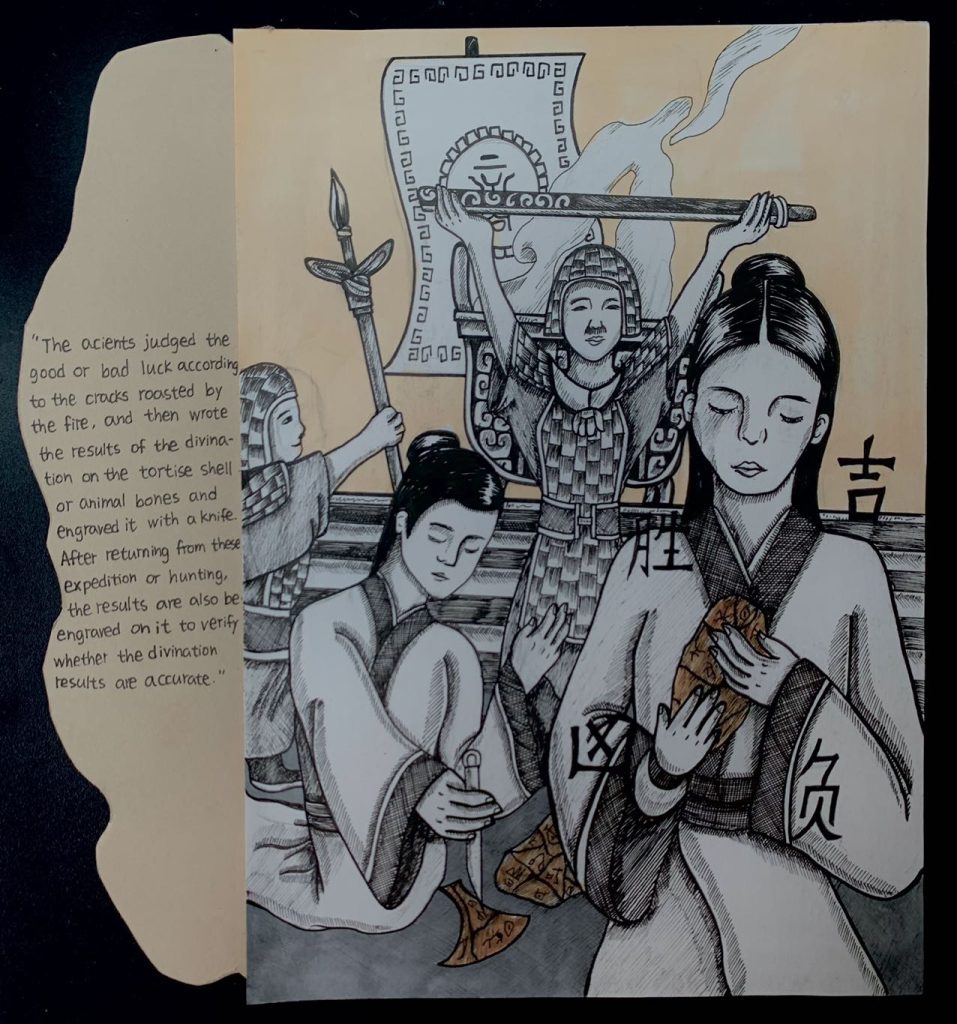
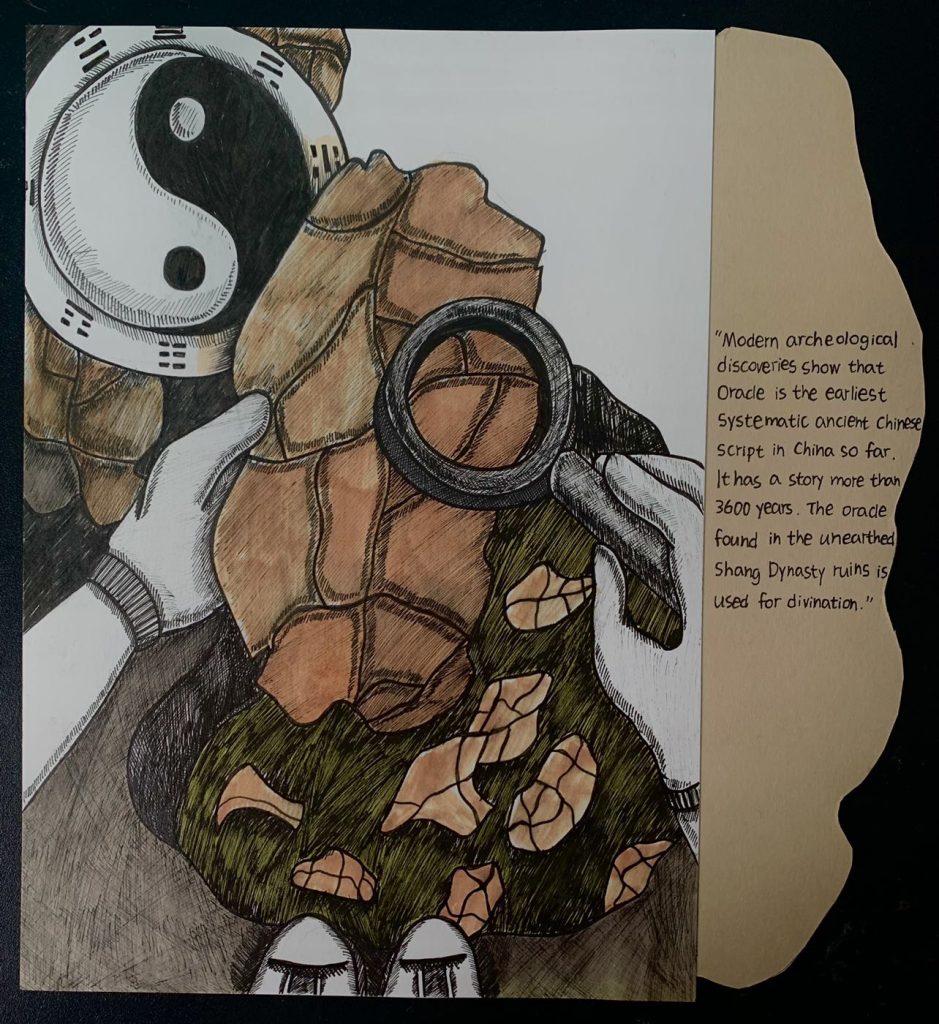
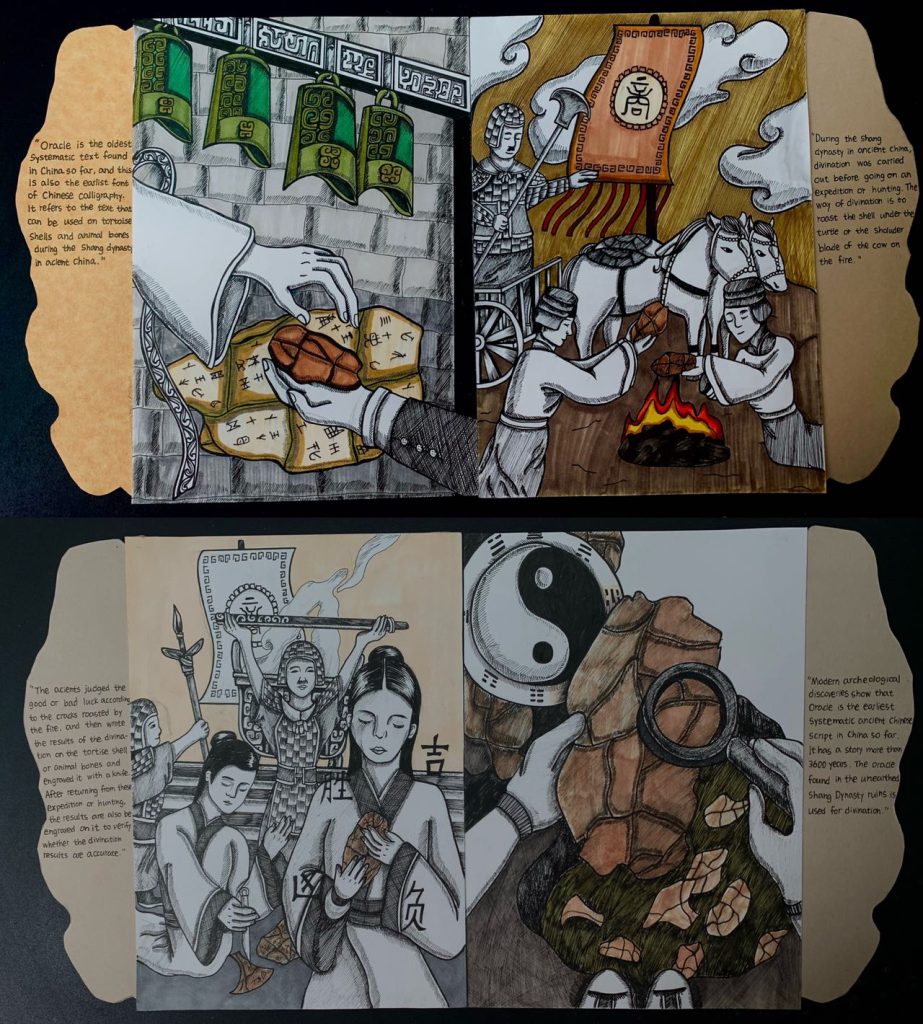
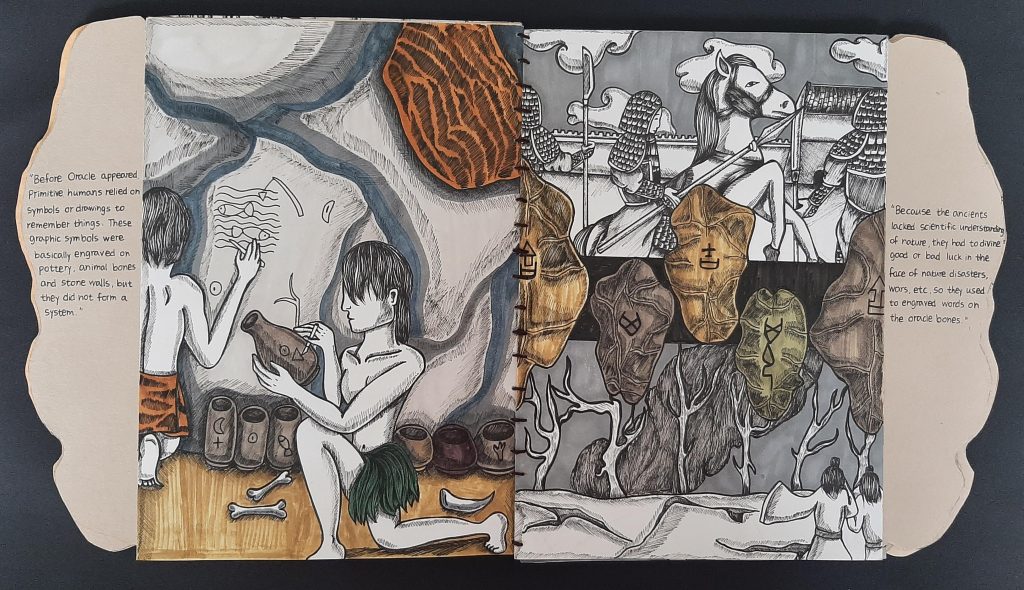
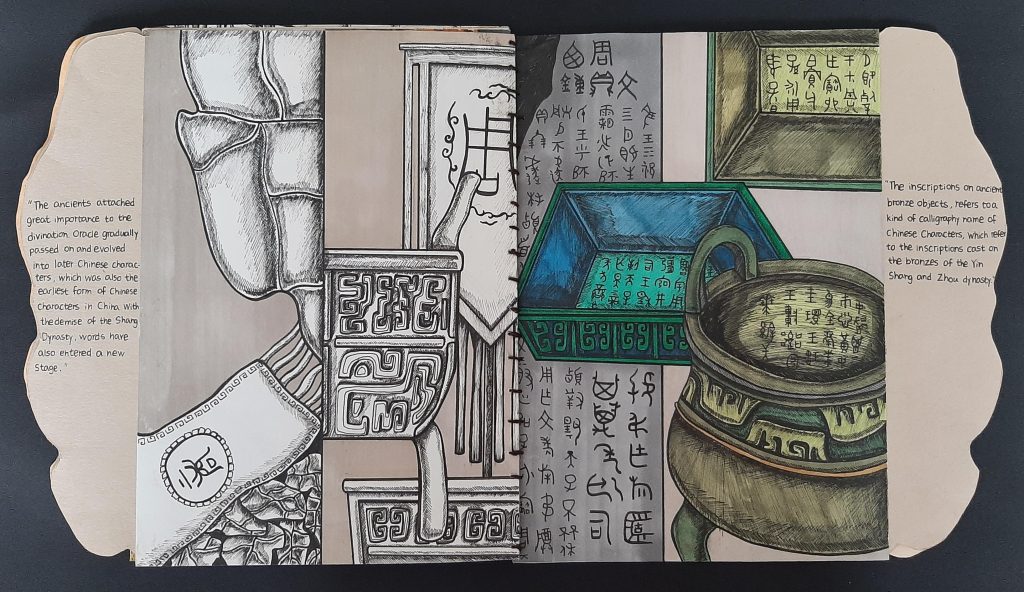

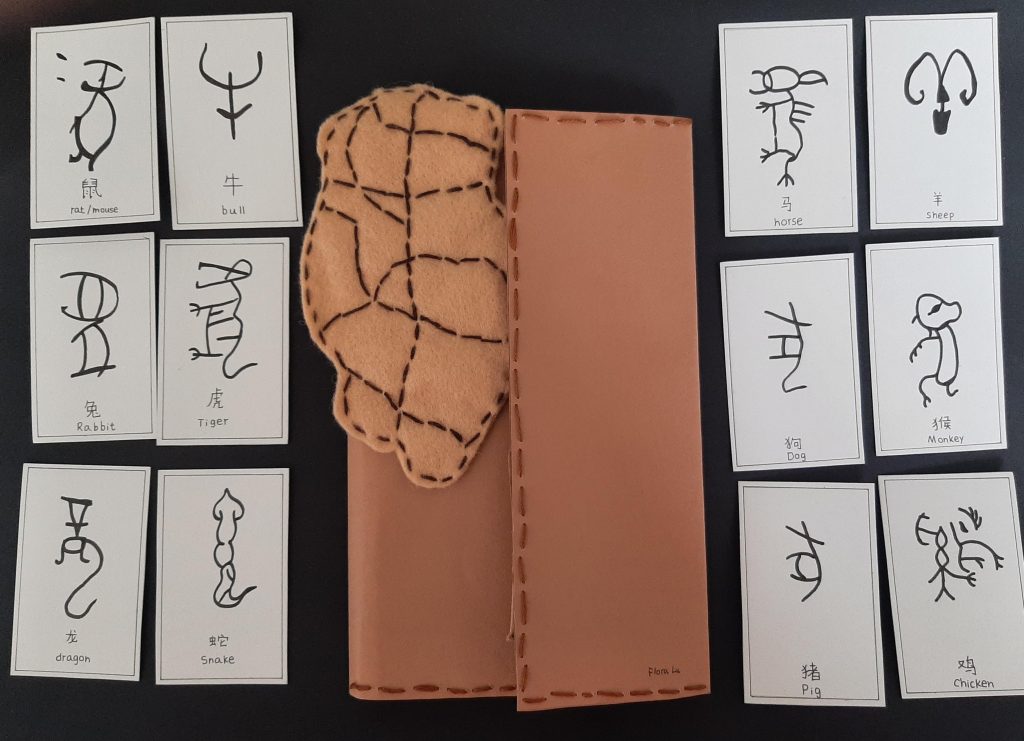
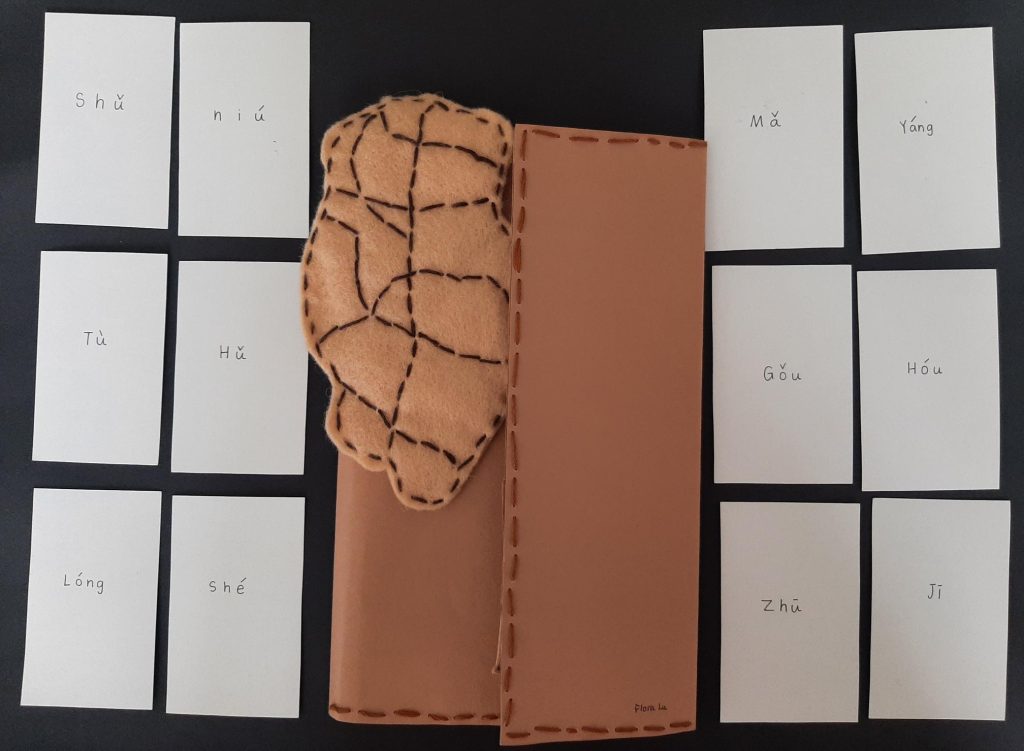
_______________________________________________________________________________
_______________________________________________________________________________
Earthly Illegible
Menglu Yuan
Wood, paper, ink (35 x 23 cm approx.)
Audio: https://on.soundcloud.com/7T1BR
A hand-bound book with writings only to be found in the spine, this work is an exploration into censorship and suppressed conversations due to the cultural, political or traditional values one finds themselves in, and the possibilities for communication in these circumstances. Things that cannot be said, but also cannot be contained. The implication of the “fold” explores conflicting ideas of protection, concealment and acts of violence. The banishment of writings into the spine seemingly elicits an action of force but the resulting mix-matched characters appear as a new language, ready to be deciphered. The accompanying audio is derived from the writings, each note corresponds to each extended stroke, varying with its length.
Menglu (Julie) Yuan is currently studying BA Fine Arts (Year 1) at CSM. She is particularly interested in exploring shared experiences and the bi-directional relationship between one and their social environment.
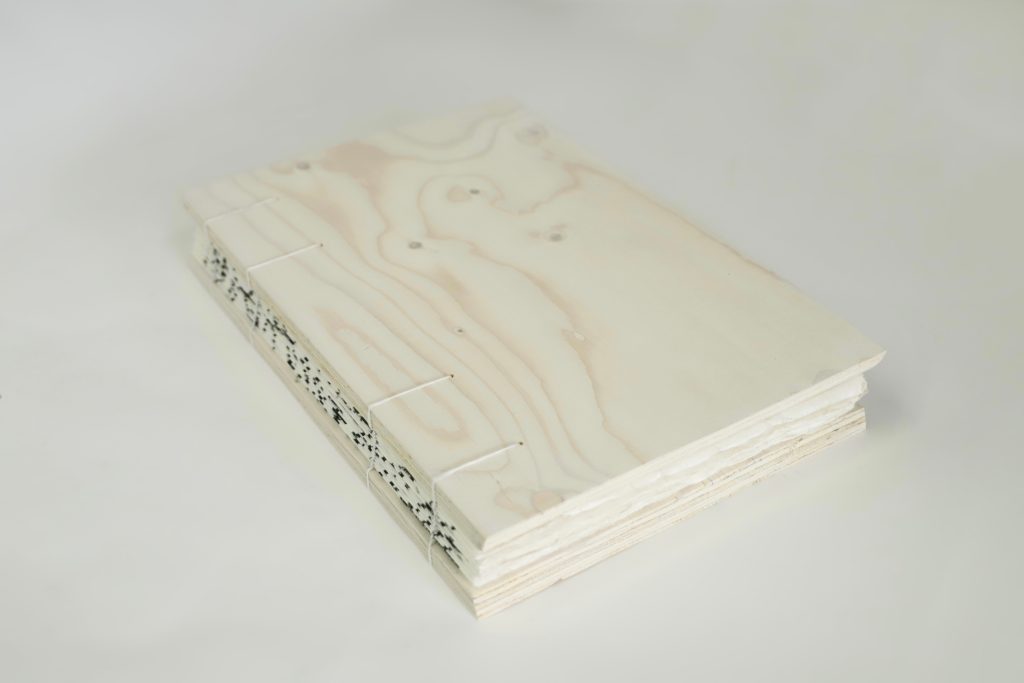
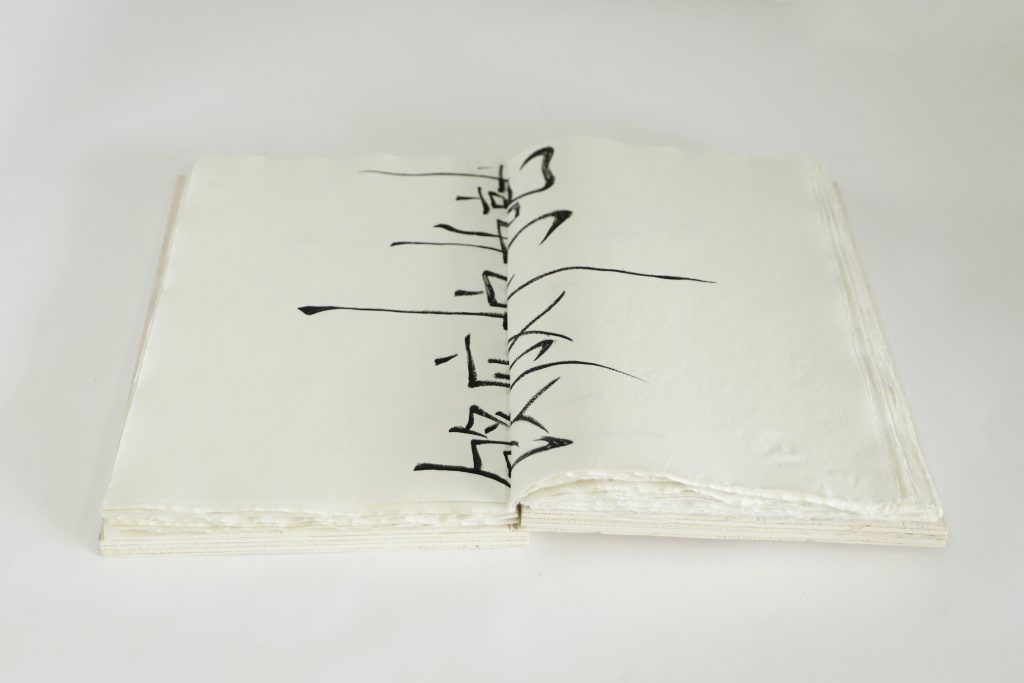
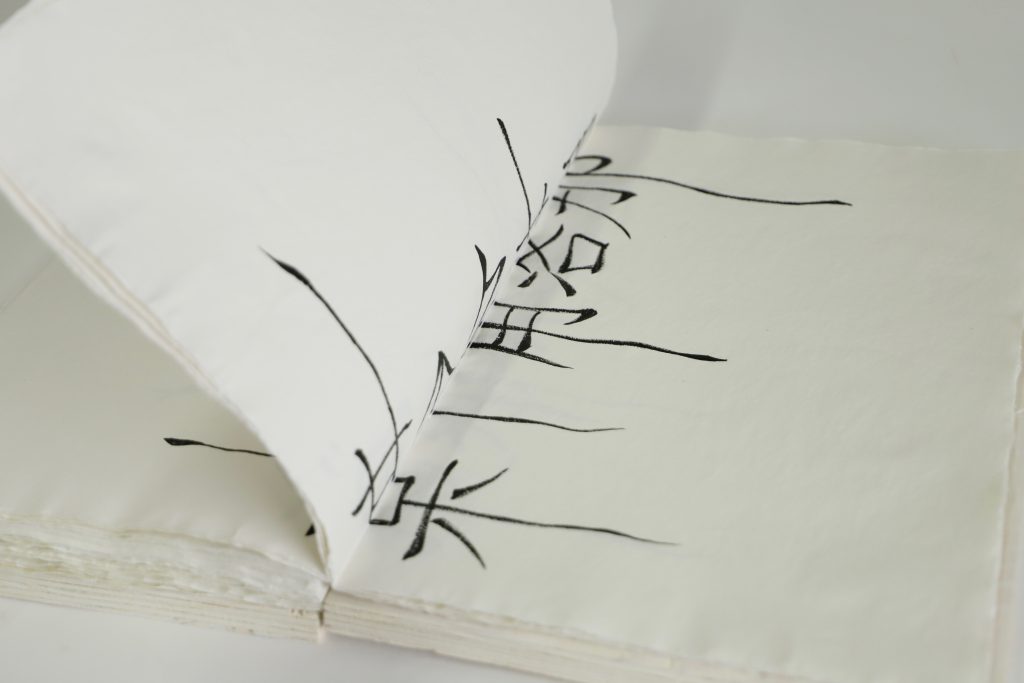
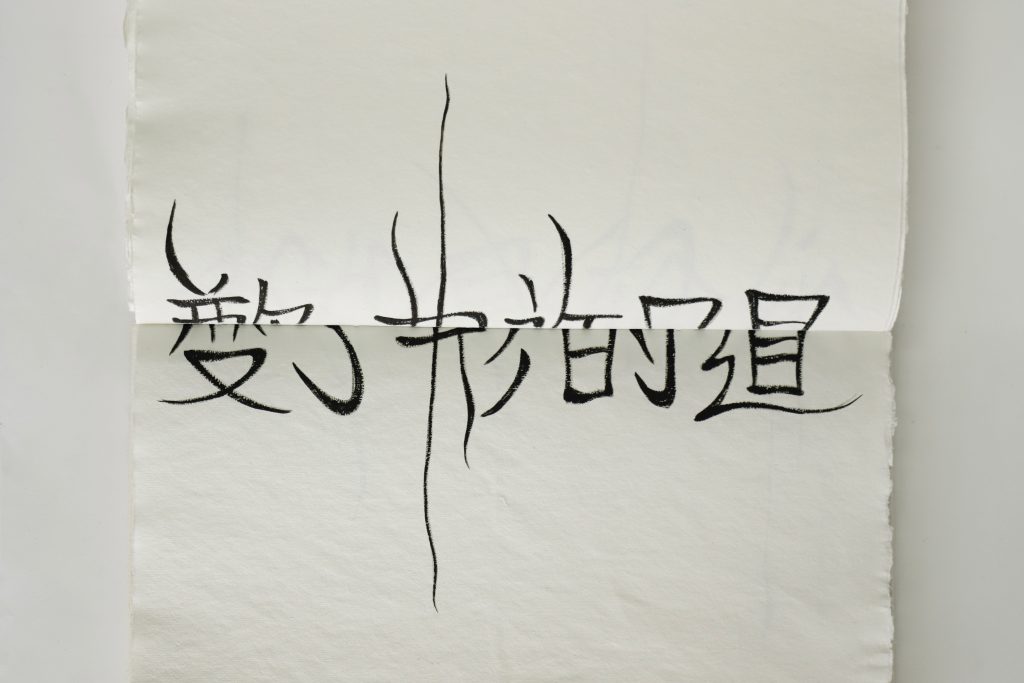
_______________________________________________________________________________
_______________________________________________________________________________
A Manifesto For Language Equality
Xintong Liang (Sammy) and Zihan Lei (Lucile)
Text and Graphic Design
In the context of globalization, people have the technology to connect with each other, but relying solely on the use of native languages inevitably hampers freedom of expression and communication, so that intercultural communication is always difficult. This has led to the creation of constructed languages (Conlang), such as Esperanto and Ido, but they still have limitations and are not widely used for political and social reasons. Cross-cultural communication remains a wicked problem.
Through this project, we explored the nature of language and how it works, compared different lingua franca used in the world and found that visual language can be the most ethical tool for cross-cultural communication. Since we have neither the ability to create a new visual language system nor the power to set visual language standards, we have chosen to use existed visual languages to create a manifesto that raise people’s awareness of the pain-points of language use worldwide and promotes language equality and inclusiveness.
Xintong Liang and Zihan Lei are studying MA Design Management at LCC. Topics of interest to them include but are not limited to multiculturalism, inclusive and equality, speculative design.

_______________________________________________________________________________




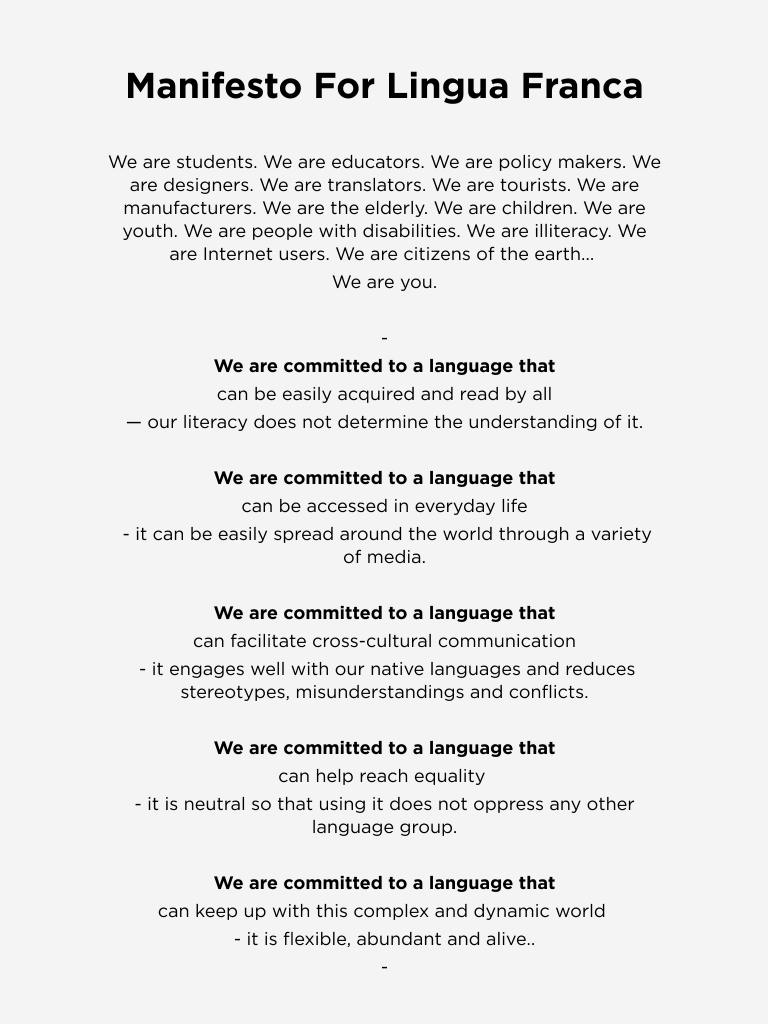
_______________________________________________________________________________